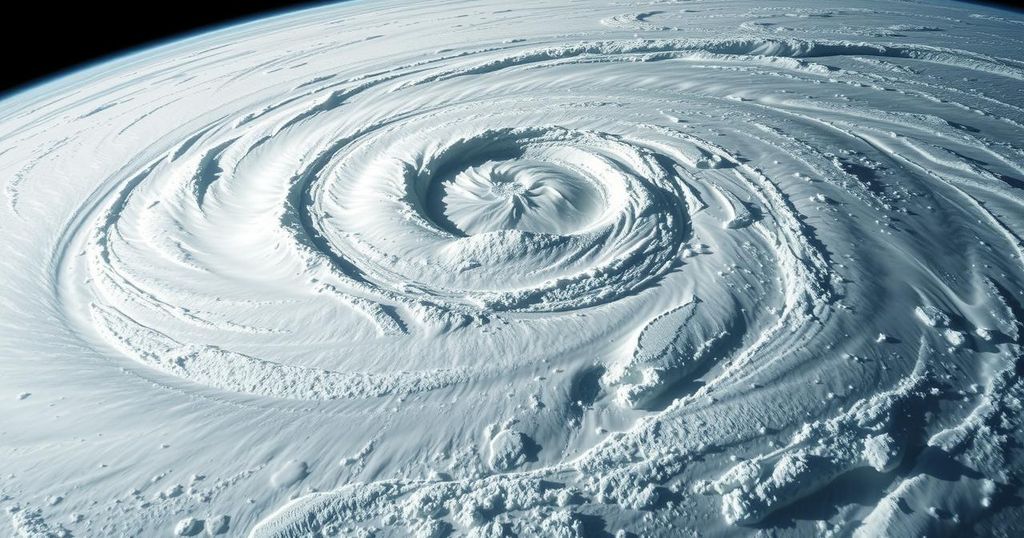World news
AFRICA, AGALEGA, BRUNO RETAILLEAU, CHI, CLIMATE, CRISIS UNIT, EMMANUEL MACRON, EUROPE, EVACUATIONS, FRANCE, INTERIOR, INTERMINISTER, JOINT TYPHOON WARNING CENTER, MAURITIAN, MAYOTTE, NASA, NASA EARTH OBSERVATORY, NATURAL DISASTER, NATURAL DISASTERS, NO, POWER OUTAGES, TORTOISE MEDIA, TYPHOON WARNING CENTER
Fatima Khan
0 Comments
Devastating Impact of Cyclone Chido on Mayotte Revealed by NASA Satellite Imagery
Cyclone Chido devastated Mayotte on December 14, 2024, with winds up to 155 mph, resulting in substantial casualties and infrastructural damage. Despite only 21 deaths officially reported, estimates suggest far greater losses. French authorities have mobilized emergency responses to assist the victims, as the region, impacted by socioeconomic challenges, faces a long recovery process.
On December 14, 2024, Cyclone Chido struck Mayotte, a French overseas region in the Indian Ocean, wreaking havoc and resulting in significant loss of life. Accompanied by winds reaching 155 miles per hour, the cyclone has been portrayed in satellite imagery released by NASA, highlighting the immense destruction it caused across the island. Although official reports state that 21 lives have been lost, the actual number may be much higher, possibly in the hundreds or thousands. The storm, which intensified quickly after its formation on December 5, made landfall in the wealthy and populous areas of Mayotte, leading to overwhelming devastation of infrastructure and homes.
Cyclone Chido represents one of the strongest storms to impact Mayotte in over nine decades, with catastrophic effects resulting from its hurricane-force winds. The storm developed under favorable climatic conditions in the Indian Ocean, exhibiting rapid intensification as it approached the islands. As the region faces unique socioeconomic challenges, the repercussions of such a natural disaster reveal significant vulnerabilities, particularly regarding infrastructural resilience and emergency response capacities.
Cyclone Chido has left an unprecedented mark on Mayotte, prompting a national response from French authorities as they begin recovery efforts amidst the devastation. The storm has not only severely impacted the local population but also demonstrated the urgent need for enhanced disaster preparedness in vulnerable regions. As the cyclone continues its path through neighboring areas, the scale of its impact will likely develop further, requiring ongoing assessment and intervention.
Original Source: www.newsweek.com




Post Comment